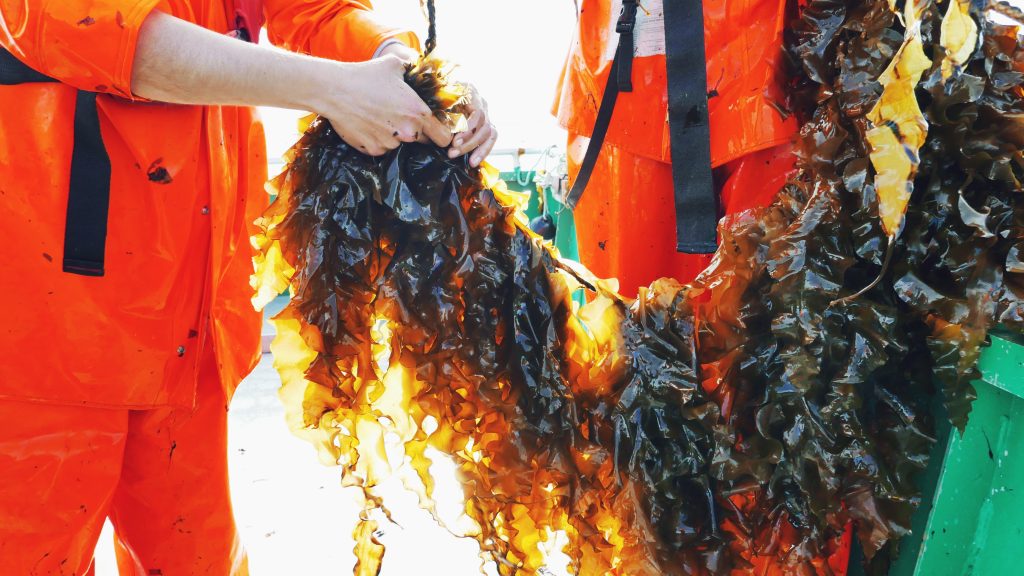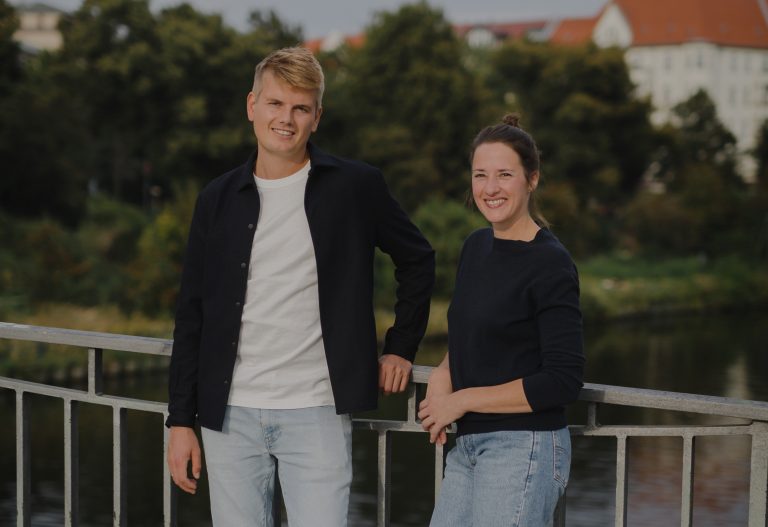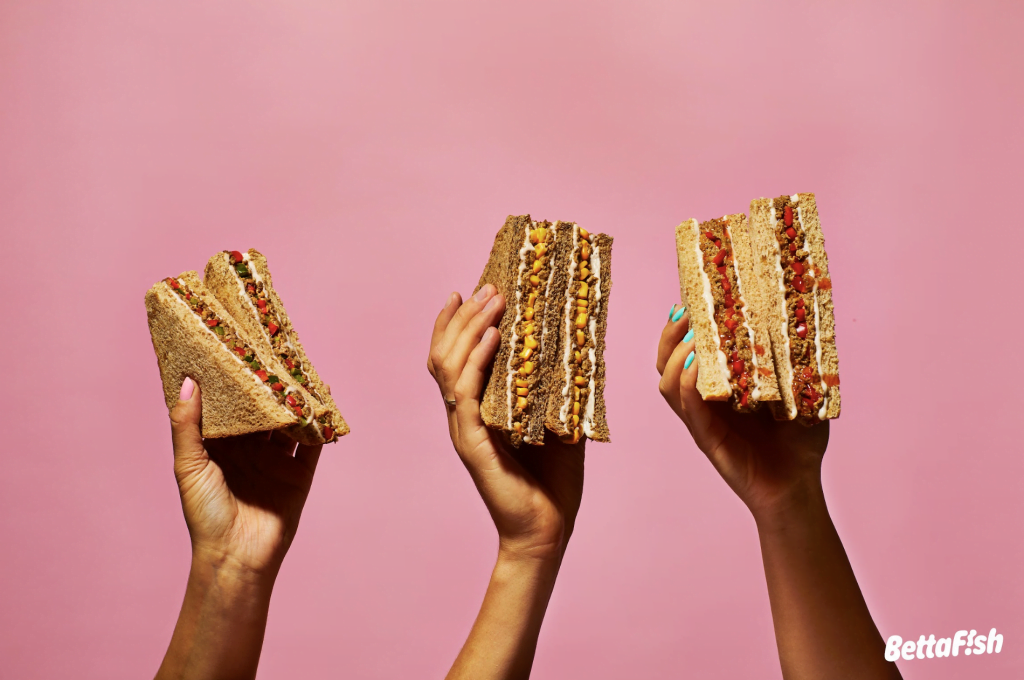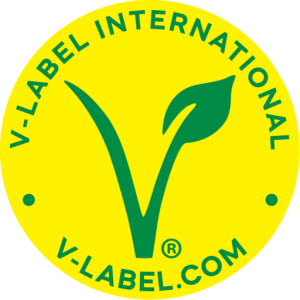Did you know that 70% of Earth’s surface is covered by water and that 90% of the world’s fish stocks suffer from exploitation or overfishing? Founders Deniz Ficicioglu and Jacob von Manteuffel have a passion for the ocean and have made it their mission to produce sustainable food alternatives in order to save a large part of the planet that they believe has been ignored for far too long. To do this, they’ve founded two companies, Oceanfruit in July 2019 and BettaF!sh in September 2021, with headquarters in Berlin, Germany. Their innovative tuna alternatives became Finalist in the Best in Sustainability and Best in Positive Impact categories in 2021, and went on to win the Best Fish Alternative category of the V-Label Awards in 2022.
With their seaweed products, they aim to help the oceans recover, while offering consumers delicious plant-based alternatives to their beloved seafood. Under their team motto, “Get Hungry for Real Change,” they want to get consumers to fall in love with seaweed, so that more and more fishing communities will switch from traditional fishing to seaweed cultivation, thereby saving oceans. With their two companies, the founders and their team are in the process of building a whole new industry of impact-enhanced foods based on regeneratively farmed seaweed for ready-to-eat meals and seafood alternatives. The more seaweed consumed, the better for the planet, they believe.

Their BettaF!sh products are based on three fundamental pillars: taste, affordability, and accessibility – all to make it easy for consumers to replace tuna in their diets with TU-NAH. Or in Deniz and Jacob’s words, “Tuna out, TU-NAH in.” Customers love that the products taste authentic and delicious, adding a whole new range to the vegan diet. Longtime vegan fans love eating TU-NAH because, since going vegan or vegetarian, they’ve never eaten anything that tastes so much like tuna. They also love the unique flavor of the Oceanfruit sea salads and the colorful, fun BettaF!sh packaging. The products can be purchased in retail stores in Germany, Austria, Switzerland, and Denmark, as well as online.
In the spring of 2022, we interviewed Deniz Ficicioglu and Jacob von Manteuffel to learn more about how they want to contribute to saving the oceans and why seaweed plays a central role in this. They also told us why it was clear for them to work with V-Label and what they like about the International V-Label Awards.
Seaweed, the multi-faceted problem-solver
“While the world turned its attention to meat alternatives, we wondered who was taking care of the oceans and their inhabitants. In doing so, we discovered how much damage our oceans have already taken, with the fishing industry being one of the main culprits. In fact, 90% of the world’s fish stocks suffer from exploitation or overfishing. In addition, we face other significant maritime challenges, such as eutrophication (= a pollution process in which an entire body of water becomes enriched with minerals and nutrients, especially nitrogen and phosphorus), acidification, climate change, water scarcity, loss of marine biodiversity, and providing sustainable sources of protein for our growing population. The FAO (= Food and Agriculture Organization of the United Nations) estimates that the seafood trade is worth almost as much as the total value of trade in pork, beef, and poultry combined. One reason for this tremendous value is that the food industry has made seafood a convenience product for consumers – particularly canned tuna.”
Jacob studied resource management as part of his master’s degree and traveled the world researching seaweed. Along the way, he wondered why Europeans don’t eat as much seaweed as Asians – even though it’s a regenerative and extremely environmentally friendly plant. He then teamed up with Deniz with the goal of popularizing seaweed in the West, reversing some of the environmental damage caused by the contemporary fishing industry, and offering a new source of protein for our growing global population.

How V-Label can support startups
“V-Label identifies vegan products in a clear and reputable way. Since our focus is on making our vegan alternatives as convenient and accessible as possible for consumers, we always knew that we wanted to have all our products certified by V-Label. Through the certification process, we discovered the International V-Label Awards and realized that our products and company met many of the criteria.
Moreover, we love the work that V-Label does beyond the certifications and awards, such as the various webinars they host, and the industry reports they produce. On top of that, V-Label is also always very good at involving startups in these activities so that they reflect what is really going on in the industry.”
The joy of recognition
“We saw a common mission alignment between what V-Label and our brands and products stand for. As our products are a win-win-win, we fit into seven categories and of course applied for all of them. We were very proud that we were selected as finalists in two of these!
We could hardly believe it when the emails started rolling in saying that our two brands were finalists in the Best in Sustainability category and Bettaf!ish in the Best in Positive Impact category. At the first announcement we were already cheering, and at the second and third we were just shocked.
Being selected as finalists in several categories gave us a huge confidence boost, especially since it was the first time we had applied and done well for an award with our new brand BettaF!sh, which was only a few months old at the time.
This inspired us to apply for more awards, so that even more people would hear about our products and fall in love with seaweed.”
An advice to future entrants
“Take the time to write an outstanding application. We had applied rather haphazardly to other awards in the past, but this time we really put effort into conveying who we are, what we do, and why we are so great. You don’t have a lot of words, so it’s important to get those three messages across succinctly.”

What's next?
“A HUGE amount! We are in an exciting period of growth, not only in terms of increasing the size of our team, but also in terms of expanding into other European markets and constantly broadening our product range under both brands.
Later this year, we will launch four new TU-NAH products under our BettaF!sh brand.
Our consumers have been asking for those since we launched our sandwiches in October 2021, so we’re very excited about the response to that. Under the Oceanfruit brand, we have two more product lines in the final stages of development and are now preparing to bring them to supermarkets and health food stores as soon as possible.”
Thoughts on the future of the plant-based industry
“We have several claims and slogans that drive our work, but one of our favorites is that we want to democratize plant-based nutrition. That pretty much reflects where we think the industry is headed. In ten years, plant-based alternatives will be so entrenched in everyone’s diet, including omnivores and carnivores, that vegan products like ours will no longer be considered “substitutes” but equal alternatives to their meat or fish counterparts.”
To see how Deniz, Jacob, and their fantastic team are making waves in the plant-based seafood industry, follow BettaF!sh and Oceanfruit on LinkedIn!
Deniz has also been selected as one of V-Label’s 20 Food Heroes in 2023: to learn more about her journey, read her story on FoodHeroes20.com!
Feeling inspired to nominate your own plant-based innovation to this year’s V-Label Awards? Enter now!


